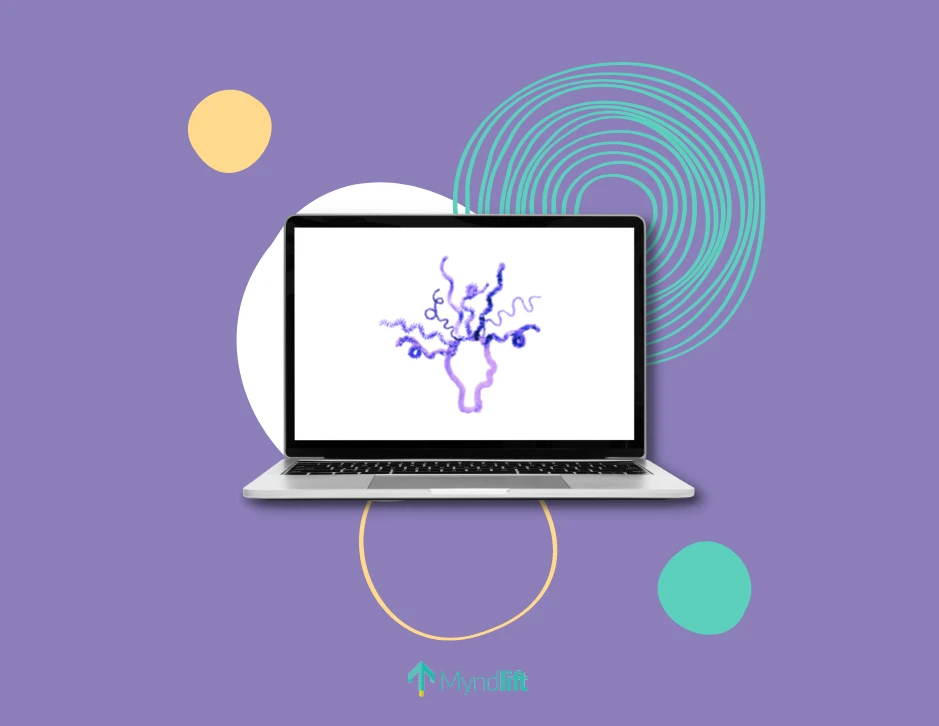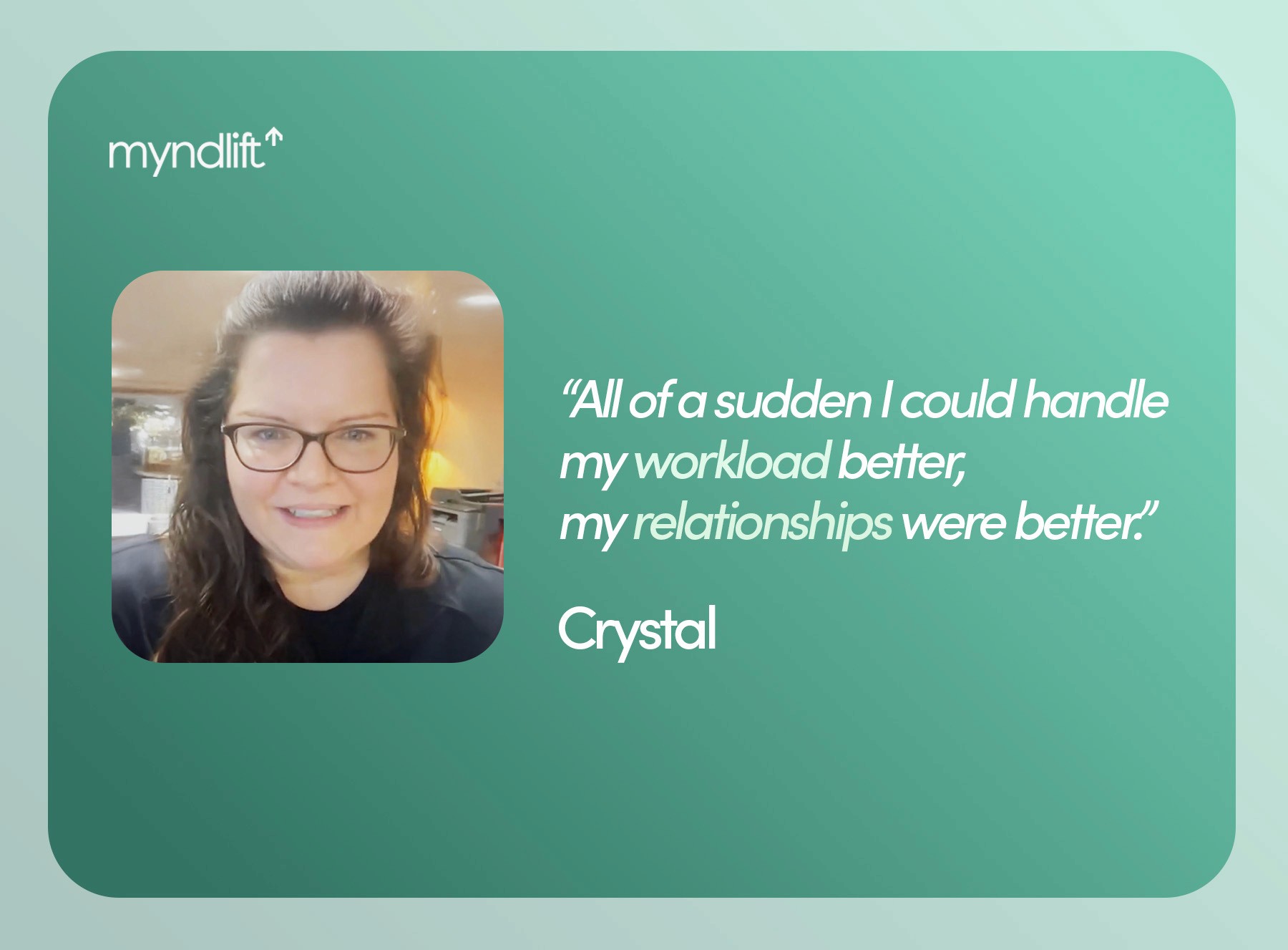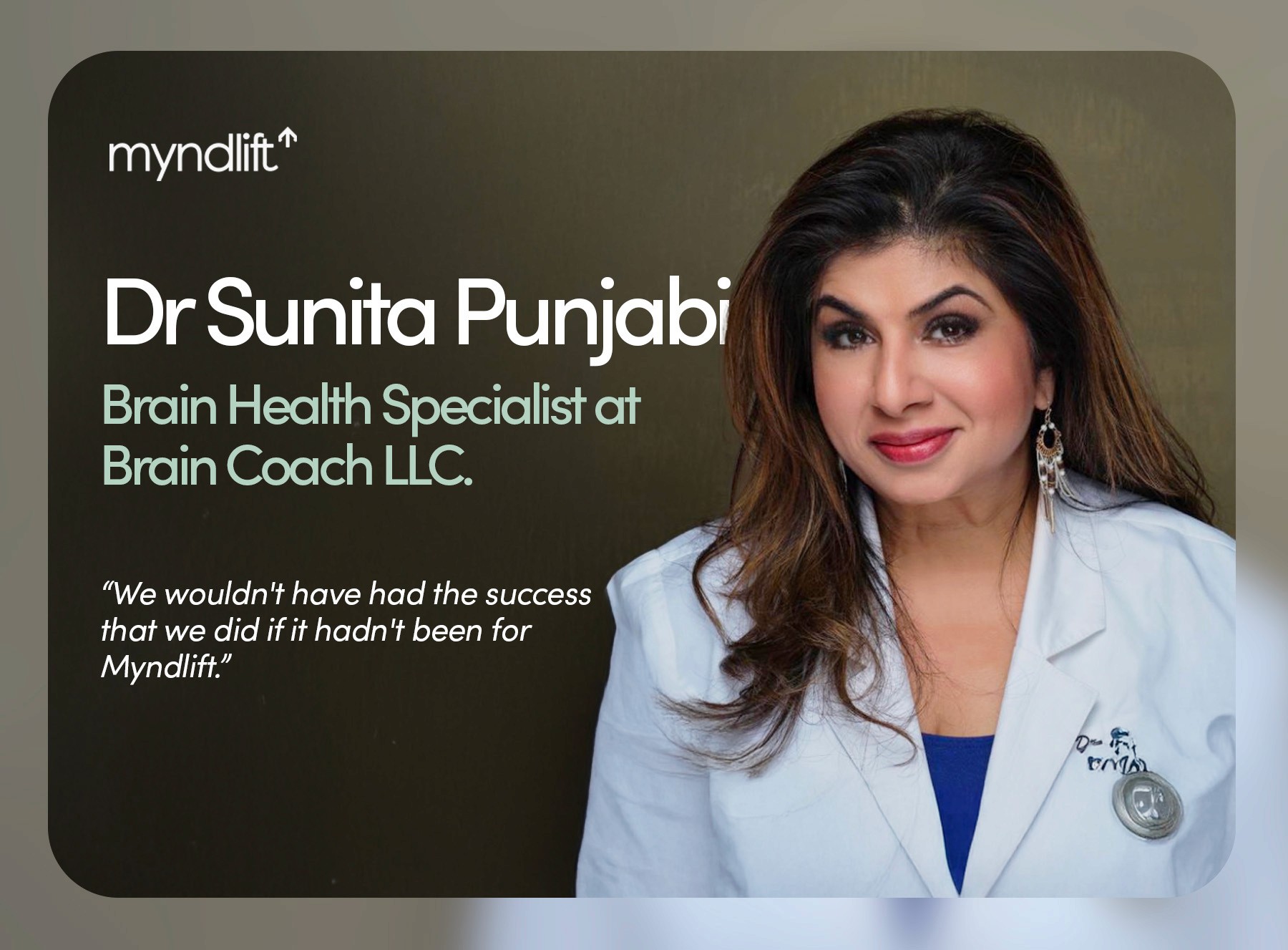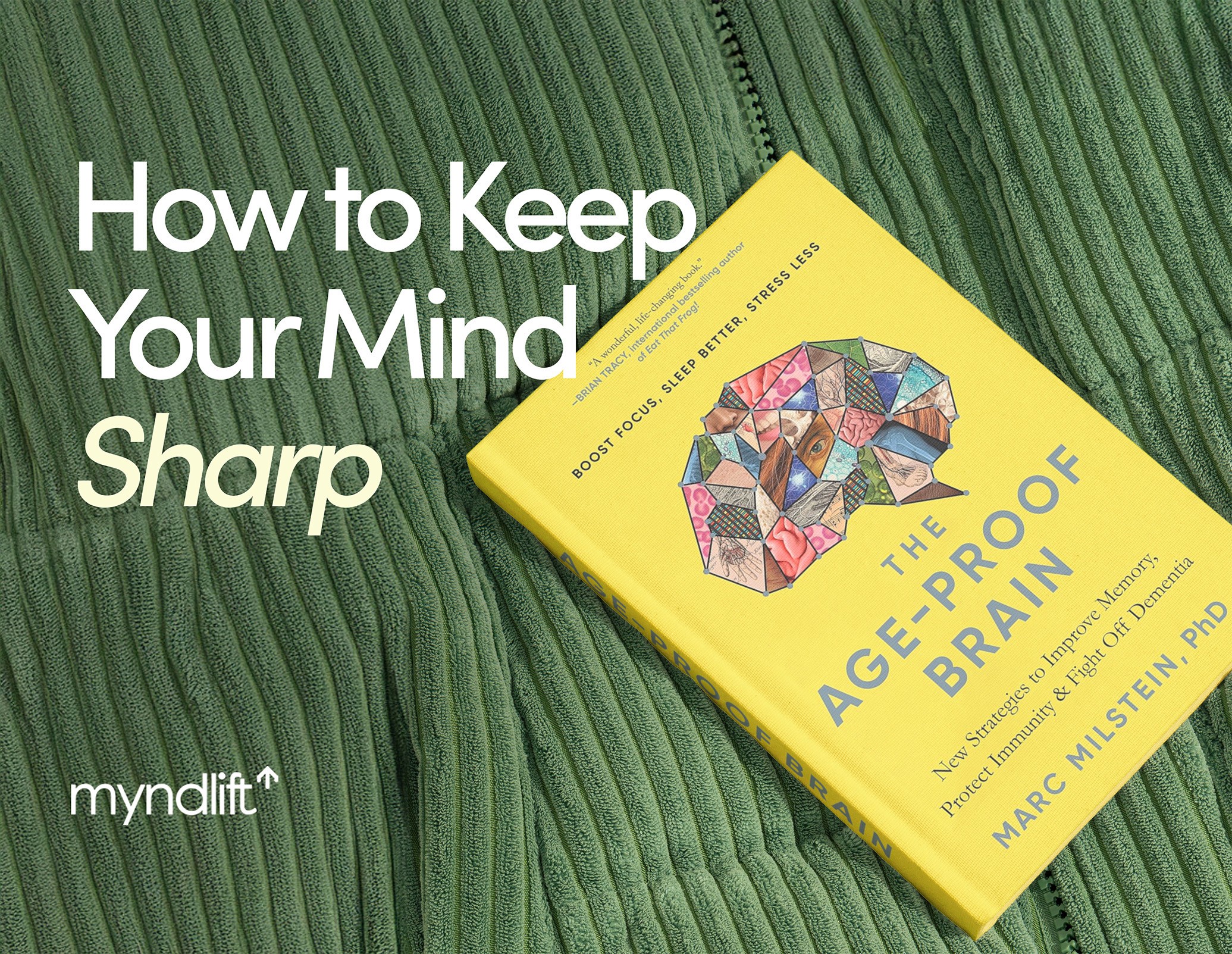Despite the fact that 1 in 20 adults in the US are affected by ADHD, and mental health awareness regarding the condition is on the rise, the stigma around it still remains.
ADHD stigma can sound like someone saying things like, "You're just lazy" or "You need to try harder." These negative stereotypes about ADHD can be harmful and cause feelings of shame and self-doubt. Furthermore, they can make someone less prone to seek help and share their experience with others, making dealing with ADHD struggles feel all the more lonely.
However, even though finding a community and friends who can relate can be tough, there are now more YouTube channels than ever that can provide the support to manage ADHD symptoms and make the journey feel less lonely.
That's why we've rounded up the best YouTube channels that help thousands of people with ADHD feel motivated and part of a community as they work to stay organized and productive. From helpful tips on managing day-to-day life to understanding the ins and outs of ADHD, these four channels offer a great resource of knowledge:
How to ADHD: Hosted by Jessica McCabe, How to ADHD destigmatizes ADHD and offers important insights into the condition as well as tips on how to cope with the symptoms.
Dr. Tracey Marks: A forensic psychiatrist, Dr. Tracey Marks, shares actionable and science-based advice on overcoming ADHD-related challenges.
Rick Wants To Know: With a pinch of humor, comedian Rick Green shares his own experience with ADHD and the knowledge he gathered through the years of living with it.
ADHD Mastery: Hosted by content creator Stuart Anderson, ADHD Mastery offers tried-and-tested practical advice on how to cope with ADHD symptoms.
It’s important to note that the tools and learnings shared on these channels are in no way a replacement for professional help. Nonetheless, they can provide valuable insight to help make it through challenging times.
1. How to ADHD
After being diagnosed with ADHD at the age of 12, American actress and writer Jessica McCabe began researching ADHD but had trouble organizing all the information she learned. In her adulthood, she turned to YouTube, a platform she was already familiar with, to retain the material.
She decided to film all of her learnings, post them on YouTube, and share them with the world. Today, her channel, How to ADHD, has over a million subscribers. Through it, she's destigmatizing ADHD and even motivating others with the condition and their families to learn more about it.
Some of our favorite How to ADHD episodes are:
ADHD in Women: Girls and women with ADHD have different experiences than boys and men with the condition, which can lead to them being mis/undiagnosed. In this video, McCabe helps us learn how to recognize the mistaken, misunderstood symptoms of ADHD in women.
How to Deal with Rejection Sensitivity: Those with ADHD are more likely to misinterpret social cues and overreact to perceived slights or rejections, which can lead to insecurity, low self-esteem, and fear of future rejection. McCabe offers tips and tricks on recognizing and managing rejection sensitivity.T
ell Me You Have ADHD Without Telling Me You Have ADHD – The Signs Everyone Missed Growing Up: McCabe comments on real-life stories from people who have ADHD, explores the signs that everyone missed growing up, and provides her insight into the struggles of living with ADHD.
2. Dr. Tracey Marks
Dr. Marks stood up in the online community due to her extensive experience and expertise in the field of mental health, as well as her ability to effectively share her knowledge and advice.
She's a highly experienced forensic psychiatrist and has been qualified as an expert in multiple federal and state courts as well as a military court martial. She runs a general psychiatry clinical practice and, on top of all this, through her YouTube channel Dr. Tracey Marks, she provides helpful mental health insights to over 1.3 million subscribers.
Some of our favorite Dr. Marks's ADHD-related videos are:
Why People with ADHD Procrastinate: According to Dr. Marks, low motivation and procrastination are partly caused by inadequate dopamine transport in our brain's reward pathways. In this video, she explains how to overcome procrastination by making tasks more fun, urgent, or challenging and making them feel fresh and new.
How To Master Time Management – ADHD Skills Part 1 (Time management): For those struggling with ADHD, managing time can be challenging. In this video, Dr. Marks presents advice such as placing clocks around our home, logging our daily activities, estimating how long each task will take, and picking up a daily or weekly/monthly planner to stay on track.
How To Push Through Tough Tasks – ADHD Skills Part 2: Simple yet efficient ways to get things done include pairing unpleasant tasks with something pleasant, as well as prioritizing tasks to avoid wasting time on unimportant things. Dr. Marks also suggests creating a comforting environment to make tough tasks more enjoyable.
3. Rick Wants To Know
Rick Green, a comedian, writer, director, producer, and the face behind the YouTube channel Rick Wants to Know, has become an integral part of the ADHD community through his unique blend of humor and insight. He was diagnosed with ADHD when he was 47 years old and shortly after became an advocate for awareness around the condition.
Since Green got diagnosed and decided to share his ADHD experience on YouTube, his channel resonated with millions of viewers with three powerful messages:
Adults can have ADHD ADHD can explain their lifelong challenges Despite its challenges, adults with ADHD can have wonderful lives
Here are some of our favorite Rick Wants To Know episodes:
Why I Get Nothing Done: Rick paints a relatable and comic picture of his unproductive day. Apart from feeling understood and amused, from this video, we can also learn which productivity tips work for Rick and which don't.
Am I Dumb: For most of his life, Rick struggled in school and at work, assuming the problem was with him. But then he realized that the stumbling block wasn't the amount of brainpower but how his brain learns the best. In this video, he talks about interest-driven learning and how we can use this approach to improve our performance.
Using a Hobby to Manage Stress: Hobbies can help us to focus and direct our attention, providing a sense of accomplishment and satisfaction. Furthermore, they allow us to take a break from our worries and focus on something else. Rick talks about how investing time in a hobby can help us reduce ADHD-related stress.
4. ADHD Mastery
The ADHD Mastery YouTube channel was created by Stuart Anderson. Anderson is not a medical professional nor a psychologist. He has, however, been struggling with ADHD symptoms throughout his life and gathered a lot of valuable knowledge on how to cope with the challenges of living with the condition.
His well-structured and organized videos on ADHD gained millions of views and gained him over 75K subscribers. Apart from offering tried-and-tested practical advice on how to cope with ADHD symptoms, he also shares his own experience and struggles, which can help viewers feel like they have a partner in what they’re experiencing. Here are some of our favorite ADHD Mastery episodes:
The ADHD Student Survival Guide 👨🎓– What I Learned: In this video, Anderson talks about his study practices, organization techniques, and some things he wishes he had done better during his studies. Examples include experimenting with different studying set-ups and environments, making study material visuals using whiteboards, and using color-coded files.
How I knew I had ADHD (Predominantly Inattentive)💡🤦♂️ Adult Diagnosis: This video provides insight into the often misunderstood variation of ADHD (inattentive type) and how it affected Anderson throughout his life. Through hearing about his experience, he helps viewers identify potential symptoms of inattentive ADHD and encourages them to seek professional help if they suspect they might have it so they too can begin working on ways to alleviate their symptoms.
How To Get Tested For Adult ADHD – (UK / US) 📝: Anderson provides a comprehensive overview of the process, including what to expect from an ADHD evaluation, what type of tests are used, and how results are interpreted. Additionally, this video offers viewers a better visual understanding of the process, which can help make it easier to remember and follow.
Having a strong support system is vital when it comes to tackling the challenges that come with living with ADHD. This is why YouTube channels that offer tips, advice, and insight into managing ADHD symptoms can be such a valuable resource.
Remember, although these YouTube creators can offer strategies to help manage symptoms, nothing should replace professional help. Don't hesitate to reach out to your doctor or a mental health professional if you suspect you may be dealing with ADHD. With the right help and support, living with ADHD can be more manageable and – dare we say it – enjoyable!
Myndlift provides professional supervised brain training that can be completed from the comfort of your home. Connect with us to launch your journey for better brain health and wellbeing from here.
About the author:
Dubravka Rebic
Dubravka Rebic puts a lot of time and energy into researching and writing in order to help create awareness and positive change in the mental health space. From poring over scientific studies to reading entire books in order to write a single content piece, she puts in the hard work to ensure her content is of the highest quality and provides maximum value.
About the checker:
Kaija Sander, Ph.D.
Kaija Sander is a cognitive neuroscientist and scientific consultant for Myndlift. She holds a BSc in Biomedical Science with a specialization in Neuroscience and Mental Health from Imperial College London and a PhD in Neuroscience from McGill University. Her doctoral research focused on brain connectivity relating to second language learning success. She is passionate about the broader applications of science to have a positive impact on people’s lives.





